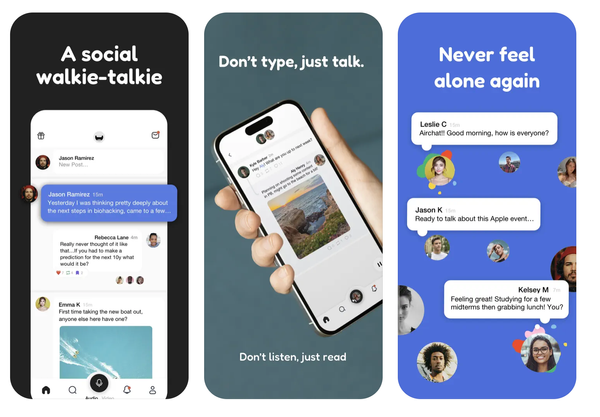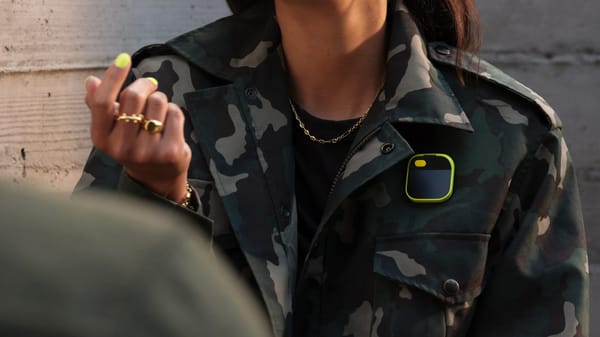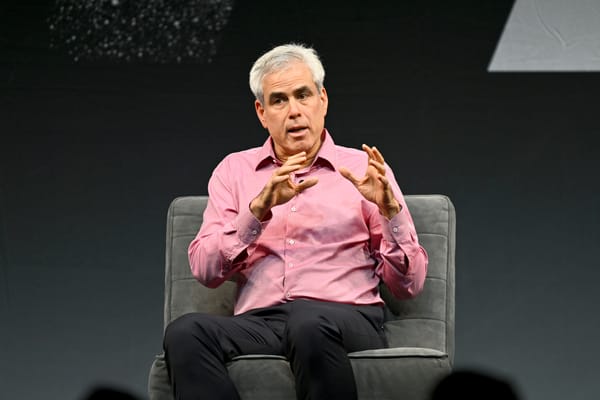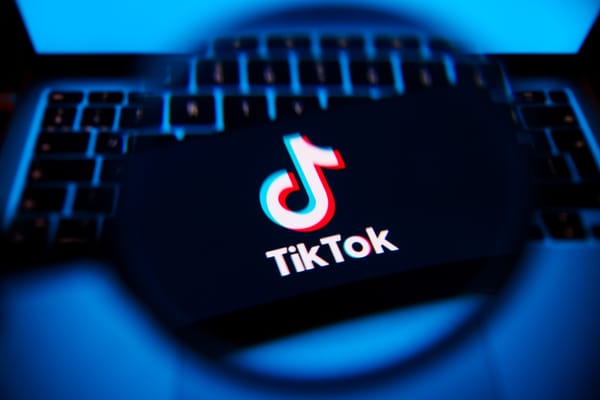Is TikTok's time running out?
In new testimony to Congress, the company faces stern questions on China
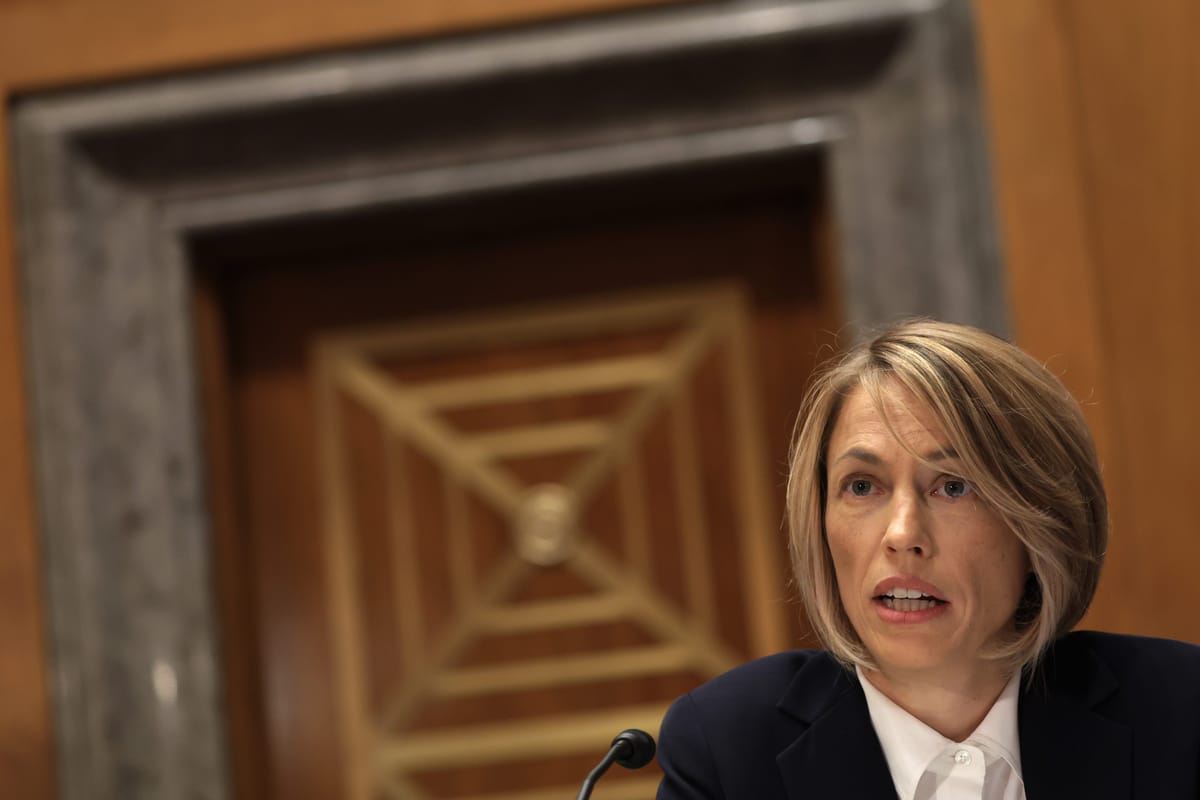
Ever since TikTok became the most-downloaded consumer app in the world, it’s been an open question when the ByteDance-owned service would face a level of scrutiny commensurate with its status. As of today, it seems clear that moment is now.
At a hearing in front of the US Senate’s Committee on Homeland Security and Governmental Affairs, TikTok COO Vanessa Pappas faced stern questioning from lawmakers. They had pointed questions about the company’s relationship with its parent, with the Chinese government, and the potential for Americans’ data to be misused. And while on one level it was simply the latest chance for our Senate to grandstand about the tech industry while doing nothing to regulate it, the hearing also showcased the growing momentum to take more definitive action against the company.
“Are there members of the Chinese Communist Party employed by TikTok or ByteDance, or no?” snarled the insurrectionist Josh Hawley of Missouri, who has fashioned himself as an anti-tech crusader.
Emily Baker-White captured what happened next at Forbes:
Pappas answered that no person who “makes a strategic decision at this platform” is a CCP member. But with respect to the rest of the app’s staff, she said the company does not vet its employees based on their political affiliations. She noted that no other tech platform present at the hearing asks its employees what political parties they belong to.
Hawley continued: “Would it surprise you to learn that Forbes Magazine recently reported that at least 300 current TikTok or ByteDance employees were members of Chinese state media?” Pappas reiterated that the company does not “look at the political affiliations of individuals.”
Visibly frustrated, Hawley said, “Your company has a lot to hide. You’re a walking security nightmare, and for every American who uses this app, I’m concerned.”
This exchange captured the essentially impossible nature of the situation TikTok is in.
On one hand, it’s true that the other companies on the stand today — Facebook, YouTube, and Twitter — don’t ask employees about their political parties. You can imagine the howling if they did.
On the other, it does seem fair to ask whether any TikTok employees are members of the Chinese Communist Party, at least insofar as that would create points of leverage within the company that could enable the Chinese government to influence the company or obtain Americans’ data without officially demanding it. (Officially, China never has, according to TikTok’s transparency report and public statements.)
Given the thousands of people who work for ByteDance and TikTok, and the fact that the Chinese Communist Party has more than 95 million members, it’s a given that some of ByteDance’s employees are party members. But Pappas couldn’t bring herself to say even that — and no matter how performative Hawley’s exasperation on that front was, the mistrust that TikTok is now engendering among lawmakers on that front seems real.
TikTok’s task is impossible because to earn the senators’ trust fully, it must prove a negative: that China has never sought to use the app for influence operations or surveillance purposes, never will, and never could even if it tried. The company swears up and down that nothing of the sort could ever take place.
But the claim seems risible, if only because we know what happens to Chinese executives when they resist the government. And reporters keep finding smoke around what may actually be fire: that Americans’ data has in fact been repeatedly accessed in China; that ByteDance did instruct staffers to promote pro-China content in a now-defunct news app called TopBuzz; that a Chinese government body inquired about joining TikTok to spread propaganda under an assumed name.
TikTok has either denied or shared important caveats to all these stories, which I covered here in detail last month. The most important, to my mind, is that tech companies find it extremely difficult to track data flows generally, and have trouble properly logging access, managing permissions, and understanding the origin of the data and metadata flowing through their servers. (There is a lot of this, for example in, Pieter “Mudge” Zatko’s whistleblower complaint against Twitter.)
After today’s hearing, though, it now seems clear that TikTok will be held to a higher standard than its rivals in this regard. When Facebook or Twitter are found to have mishandled user data, or accidentally employed a foreign agent, the worst they can expect are fines and some theatrical grandstanding in a congressional hearing. For ByteDance, though, the same crimes risk the equivalent of a death penalty — TikTok being banned altogether, as it was in India in 2020; or being forced to divest it, as former President Trump attempted while he was in office.
TikTok’s approach to all this has been to market its “transparency” — to reveal more about its operations and algorithms than any of its peers. In a blog post later on Wednesday — titled “Strengthening our commitment to transparency,” of course — Pappas said that among other things that the company would begin reporting covert influence networks found within the app, just as Facebook has done for years now.
That’s in addition to a raft of other measures that most of its peers haven’t tried, including still-embryonic efforts to provide APIs to researchers to help them study both content on the platform and how TikTok moderates it. The company also said last month it would let Oracle regularly vet its models for recommendations and moderation systems.
These are worthy efforts, and I’m glad TikTok is pursuing them. But we are now two years into TikTok’s real transparency era, which began with the (virtual) opening of its first physical “transparency center,” where lawmakers and other interested parties were to be invited to inspect and understand its algorithms up close.
These measures may have worked in the moment. Trump’s effort to forcibly deliver TikTok to his campaign donors was still well under way at that time, but it fizzled as the president turned his attention to more pressing matters, such as how to overturn the election that he lost. I doubt “transparency” had much to do with that, but at the very least President Biden took a softer tone against ByteDance when he took office.
But how much longer will that last? The Committee on Foreign Investment in the United States, or CFIUS, is still conducting a security review of the app. Testifying today, Pappas said TikTok is moving closer toward reaching an agreement with the US government that will put these questions to rest for good. And yet listening to senators’ questions today, I wondered: how could any such agreement do that?
Particularly because, as I noted here earlier this week, more and more executives have begun to bang the drum that maybe TikTok should be banned after all. At the Code Conference in Los Angeles last week, Axel Springer CEO Mathias Dopfner said TikTok ought to be banned in every democracy; Snap CEO Evan Spiegel, in his comments, didn’t push for any particular outcome but made clear he was following the CFIUS review closely. (For its part, Meta has been conducting a nationwide influence operation meant to sour everyone on its chief rival.)
In short, we’ve arrived at a moment where some of the most influential people in the United States, from its lawmakers to its leaders of industry, stand to benefit by pressing the same point: that a TikTok owned by ByteDance is not good for America.
(I’d also add that this has become an increasingly popular point in the press; recently Ezra Klein and Ben Thompson have made studied cases for ByteDance to divest the app.)
In her opening statement today, Pappas notably avoided any mention of China at all. In the company’s telling of the story, it is a pure entertainment app, owned by a company incorporated in the Cayman Islands, created by a distributed global workforce that just happens to have some Chinese employees.
By the end of the day, though, it didn’t seem like many senators were buying it. And I suspect that may lead, sooner or later, to ByteDance having to sell it.
Governing
- A package that triggered a small explosion upon opening, causing the man who opened it to suffer minor injuries, included a “rambling note” that criticized Mark Zuckerberg “and the relationship between academic institutions and the developers of virtual reality.” (Aya Elamroussi, John Miller and Rob Frehse / CNN)
- The US Department of Commerce signed a research and development agreement with Google to develop new open-source chip designs for nanotechnology and other uses. (Sabrina Ortiz / ZDNet)
- Terraform co-founder Do Kwon is facing an arrest warrant in South Korea after the collapse of TerraUSD crumbled and took much of the crypto sector down with it. (Hooyeon Kim / Bloomberg)
- Americans who had deposited their money with Tornado Cash can apply to withdraw their funds without being subject to sanctions. (Brady Dale / Axios)
- India opted out of trade talks with a US-led group of Asian countries, the latest sign of the country’s determination to assert more authority over global tech companies. (Megha Mandavia / Wall Street Journal)
- A look at the growth of text messages as a channel to spread election misinformation, as there are few easy ways to stop bad actors. (Kevin Collier / NBC)
Industry
- A review of the iPhone 14 Pro finds a lot to like about the new “dynamic island” notch, but camera improvements are hard to spot to all but the most expert users. (Nilay Patel / The Verge)
- Hands-on impressions of the PlayStation VR2 are quite positive, with praise for the comfort of the device, the Sense controllers, and the quality of the games sampled. (Jay Peters and Victoria Song / The Verge)
- Apple plans to introduce new ad slots into the App Store as soon as this holiday season, as phase two of the App Tracking Transparency plot unfolds. (Kif Leswing / CNBC)
- A profile of Twitter board chairman Bret Taylor, the calm and polite opposite of his antagonist Elon Musk, amid the $44 billion battle to decide who will own Twitter. (Brody Ford and Kurt Wagner / Bloomberg)
- Patreon laid off 80 people, or 17 percent of its staff. (Amanda Silberling / TechCrunch)
- Inflation has come to app stores, with the average price of an in-app purchase in the United States rising 40 percent on iOS and 9 percent on Android. App Tracking Transparency seems to be behind the bigger increase on iOS, as it now costs developers much more to find new customers. (Adam Blacker / Apptopia)
- Virtual reality developers are criticizing Meta for opaque policies that can make it difficult for them to put games and other apps into the Oculus store, with some say the company is harming competition. (Naomi Nix / Washington Post)
- TCG led a $100 million investment in Night Capital, a new firm run by Mr. Beast’s manager that plans to build new consumer businesses around popular creators. (Ben Mullin / New York Times)
- A survey finds that 91 percent of Americans say emoji make it easier for them to express themselves, and that 😂 is the most popular. (Adobe)
Those good tweets
Thank you for contacting the abyss. Your scream is very important to us.
— Blue Berrymore (@BerrymoreBlue) 1:48 AM ∙ Sep 13, 2022
having a rly productive day. haven’t like accomplished anything yet but in terms of attitude
— charlie (@chunkbardey) 7:45 PM ∙ Sep 13, 2022
date idea: we sit and listen to my playlist in complete silence and you stand up and applaud me when it’s finished
— mount bellyache (@mountbellyache) 4:06 PM ∙ Sep 13, 2022
modern day pie-cooling-on-a-windowsill
— john (@johnsemley3000) 7:14 PM ∙ Sep 13, 2022
Talk to me
Send me tips, comments, questions, and proposals for dealing with TikTok: casey@platformer.news.


